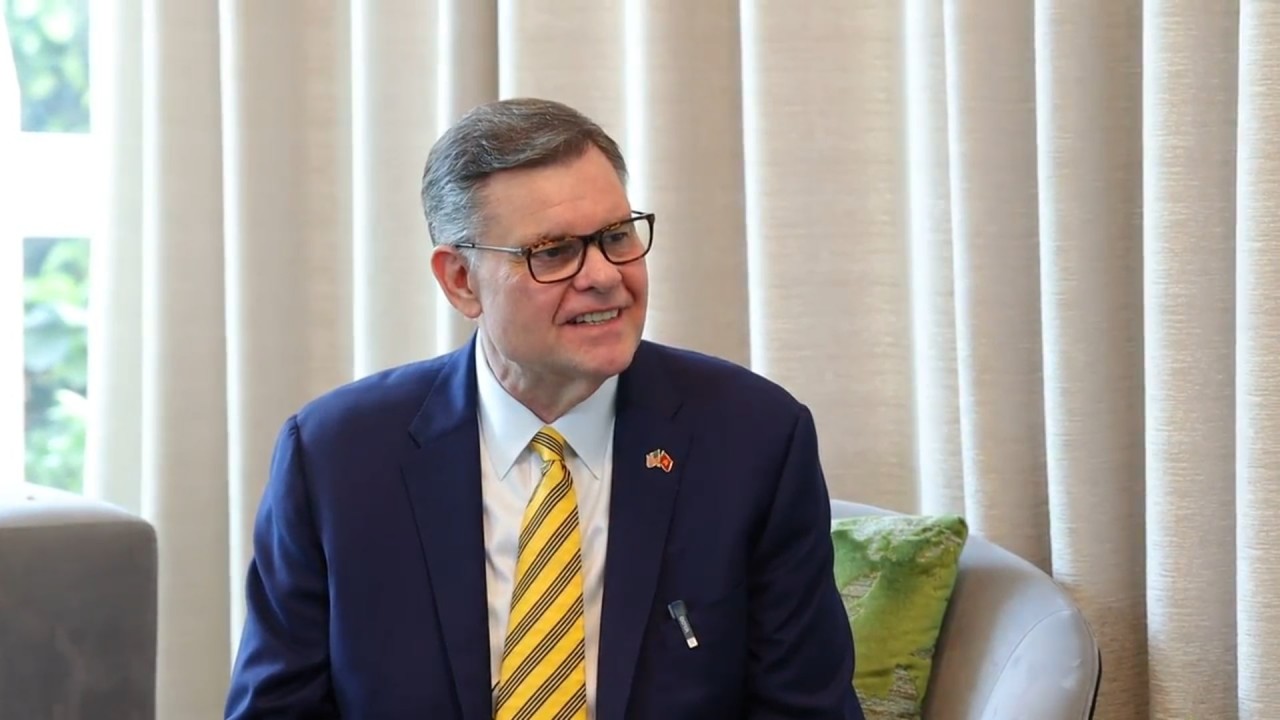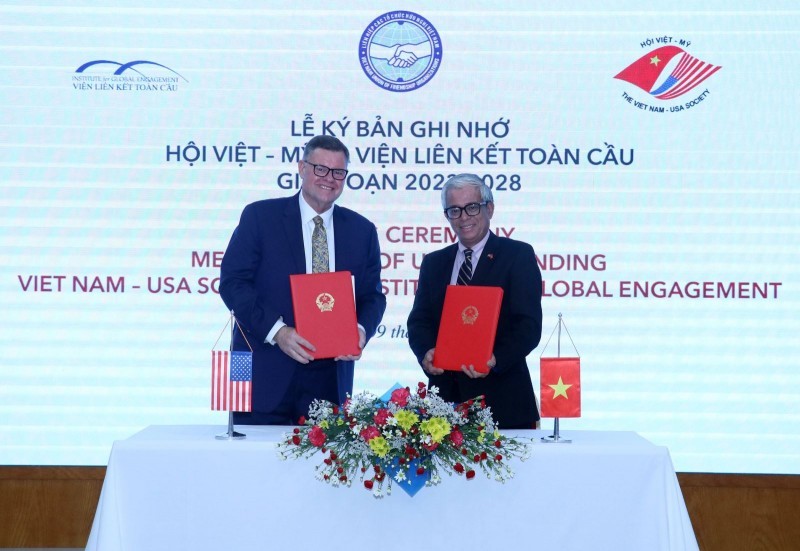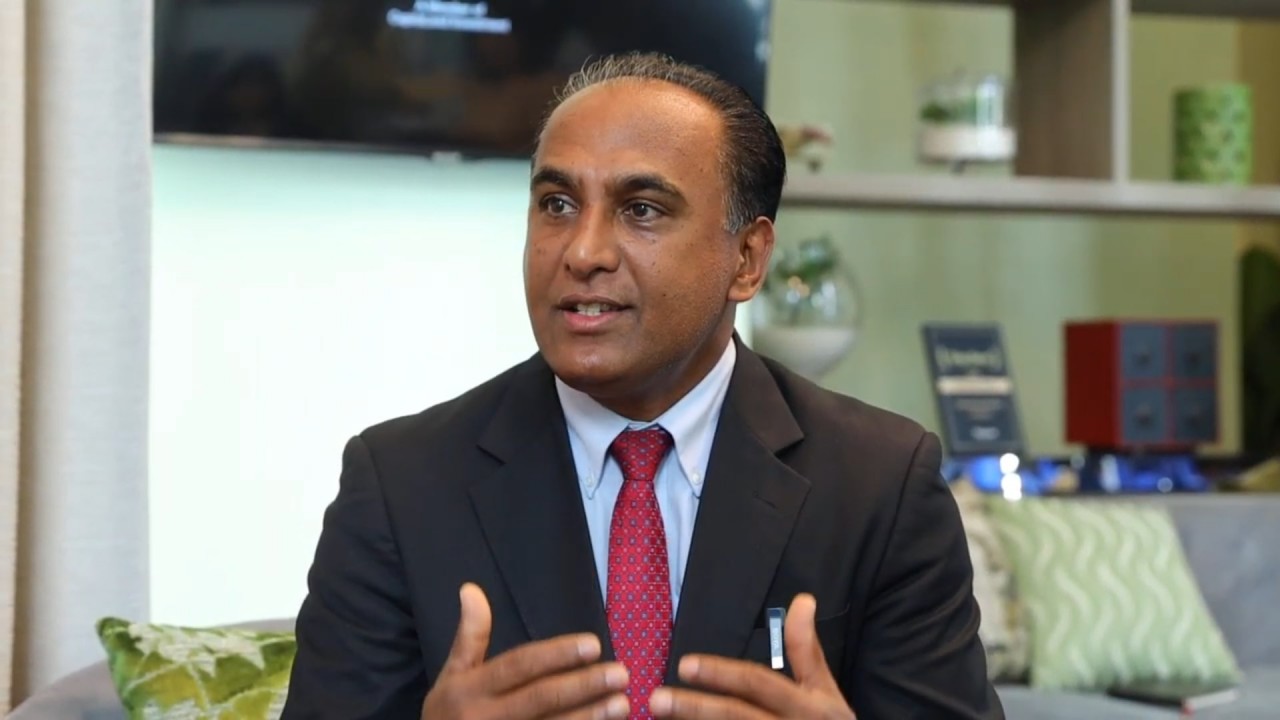Pastor Bob Roberts Praises Vibrant Vietnamese Church Growth
- Thursday - 12/12/2024 03:44
- Close page

Pastor Bob Roberts first visited Vietnam in 1995. Currently, he is the President of the Institute for Global Engagement (IGE), an organization dedicated to promoting freedom of faith worldwide. He is also the founder of Glocal Ventures, Inc. (GVI), a non-governmental organization based in Hanoi.
During his recent visit to Vietnam, Pastor Bob Roberts, President of the Institute for Global Engagement (IGE/USA) and head of the Delegation of the Global Collaborative Community, spoke with VietnamTimes Magazine. He shared his insights on Vietnam’s religious practices and outlined future cooperation plans following his firsthand experiences in Vietnam.
Could you share the purpose of your delegation’s visit to Vietnam and your impressions of the country?
Our visit serves two main purposes. First, the global Christian community has a significant presence, and Vietnam has a large Catholic, Protestant, and other Christian population. We aim to connect the Vietnamese Christian community with the global Christian community.
Our delegation includes many religious leaders from India, Indonesia, Australia, and other countries, who seek to engage with Vietnamese churches, observe their activities, and meet with relevant institutions.
Second, we want to invite international pastors to witness Vietnam’s development firsthand. This is an amazing country. When I first came to Vietnam 30 years ago, the streets were dominated by bicycles and a few motorbikes. Now, cars and motorbikes are everywhere, and the cities have become much more modern. Through this visit, we hope the pastors will have the chance to learn more about Vietnam and engage with its Christian community.
Having worked with various partners in Vietnam over the years, how do you view the religious situation and the promotion of freedom of religion and belief in Vietnam?
Every visit to churches in Vietnam leaves me with positive experiences. Churches are vibrant, thriving, and achieving remarkable milestones. Stories of the growth of churches in Vietnam have reached audiences worldwide. I am deeply impressed by how Vietnamese believers understand the Bible, have a solid foundation of faith, and live in alignment with Biblical teachings.
What stands out the most is the spirit of community among believers in Vietnam. They not only practice their faith but also contribute to the country's prosperity as good citizens.
I have met Pope Francis several times, and in some conversations, we talked about Vietnam, a country with a dynamic and thriving Catholic community. I expressed my hope that the Pope would visit Vietnam to witness the growth and vitality of the Church here.
The Vietnamese government has made significant progress in religious matters. Since 2001, many legal documents have been issued to promote freedom of religion and protect churches and religious organizations, not only for Christians but also for other religions, such as Buddhism.
I appreciate the openness and readiness of the Vietnamese government to address challenges in ensuring religious freedom.
Religious freedom is an issue that every country must continuously strive to improve. In the US, we face our own challenges, such as prejudice or difficulties in establishing places of worship. This shows that challenges exist everywhere.
However, what is commendable about Vietnam is the government’s commitment to addressing these issues. When challenges arise, Vietnamese authorities have been responsive and proactive in improving the situation. This is encouraging.
I am working to share with the US government and the State Department the positive progress Vietnam has made in the field of religion. Many US diplomats focusing on religious freedom have also recognized Vietnam’s significant strides in addressing and resolving challenges in this area.
The Institute for Global Engagement (IGE) and the Vietnam-USA Society (VUS), under the Viet Nam Union of Friendship Organizations (VUFO), signed their first Memorandum of Understanding (MoU) on religious cooperation 20 years ago. How do you view the changes in Vietnam’s religious landscape and the impact of this cooperation on bilateral relations?
I have been President of IGE for a year and a half, but I have been involved with the organization since the early 2000s. I witnessed the signing of the first MoU between IGE and the Vietnam-USA Society, VUFO.

We are not just collaborators but close friends, working diligently on legal and practical issues while fostering mutual respect. IGE’s model of cooperation in Vietnam is now being applied in other nations like Uzbekistan, Kazakhstan, Sudan, and Pakistan.
For IGE, Vietnam is not only a place where we can assist those seeking religious freedom but also a partner in learning and sharing experiences globally. It’s extraordinary!
Could you share the plans to strengthen cooperation between IGE, VUFO, and other organizations in Vietnam?
We signed our third MoU last year, opening up promising collaboration plans. Beyond religious freedom, we are also focusing on the social responsibility of religious organizations through meaningful community projects.
Recently, we visited rehabilitation centers managed by churches that support individuals recovering from drug addiction. In the future, we hope to enhance cooperation with these organizations and promote connections and exchanges among pastors, churches, government leaders, and communities in Vietnam and the US.
We also met with the Ho Chi Minh National Academy of Politics to discuss plans for exchange programs. We intend to invite around 100 pastors to teach philosophy and explore life in Vietnam. Conversely, Vietnam can send scholars to the US to discuss Christianity and share the unique aspects of life in Vietnam.
Our dream is to deepen people-to-people exchanges, enriching bilateral ties at a profound level.
We are not just collaborators but close friends, working diligently on legal and practical issues while fostering mutual respect. IGE’s model of cooperation in Vietnam is now being applied in other nations like Uzbekistan, Kazakhstan, Sudan, and Pakistan.
For IGE, Vietnam is not only a place where we can assist those seeking religious freedom but also a partner in learning and sharing experiences globally. It’s extraordinary!
Could you share the plans to strengthen cooperation between IGE, VUFO, and other organizations in Vietnam?
We signed our third MoU last year, opening up promising collaboration plans. Beyond religious freedom, we are also focusing on the social responsibility of religious organizations through meaningful community projects.
Recently, we visited rehabilitation centers managed by churches that support individuals recovering from drug addiction. In the future, we hope to enhance cooperation with these organizations and promote connections and exchanges among pastors, churches, government leaders, and communities in Vietnam and the US.
We also met with the Ho Chi Minh National Academy of Politics to discuss plans for exchange programs. We intend to invite around 100 pastors to teach philosophy and explore life in Vietnam. Conversely, Vietnam can send scholars to the US to discuss Christianity and share the unique aspects of life in Vietnam.
Our dream is to deepen people-to-people exchanges, enriching bilateral ties at a profound level.
Pastor Jossy Chacko, who currently lives in Melbourne, Australia, also shared his appreciation for Vietnam’s efforts in promoting freedom of religion.

“Vietnam has made remarkable progress in demonstrating openness and readiness for dialogue on religious freedom. When I spoke with Christian believers in Vietnam, they are encouraging and very positive about the country’s future, especially in the religious field.
The Vietnamese government has excelled in establishing a legal framework that allows religious organizations to participate in international events, foster dialogue, and create specialized agencies for support in this field.
I have attended National Prayer Breakfast events in various countries and noticed that Vietnam has also sent representatives to similar events. This shows that Vietnam not only learns from global practices but also effectively integrates these experiences into its policies.”